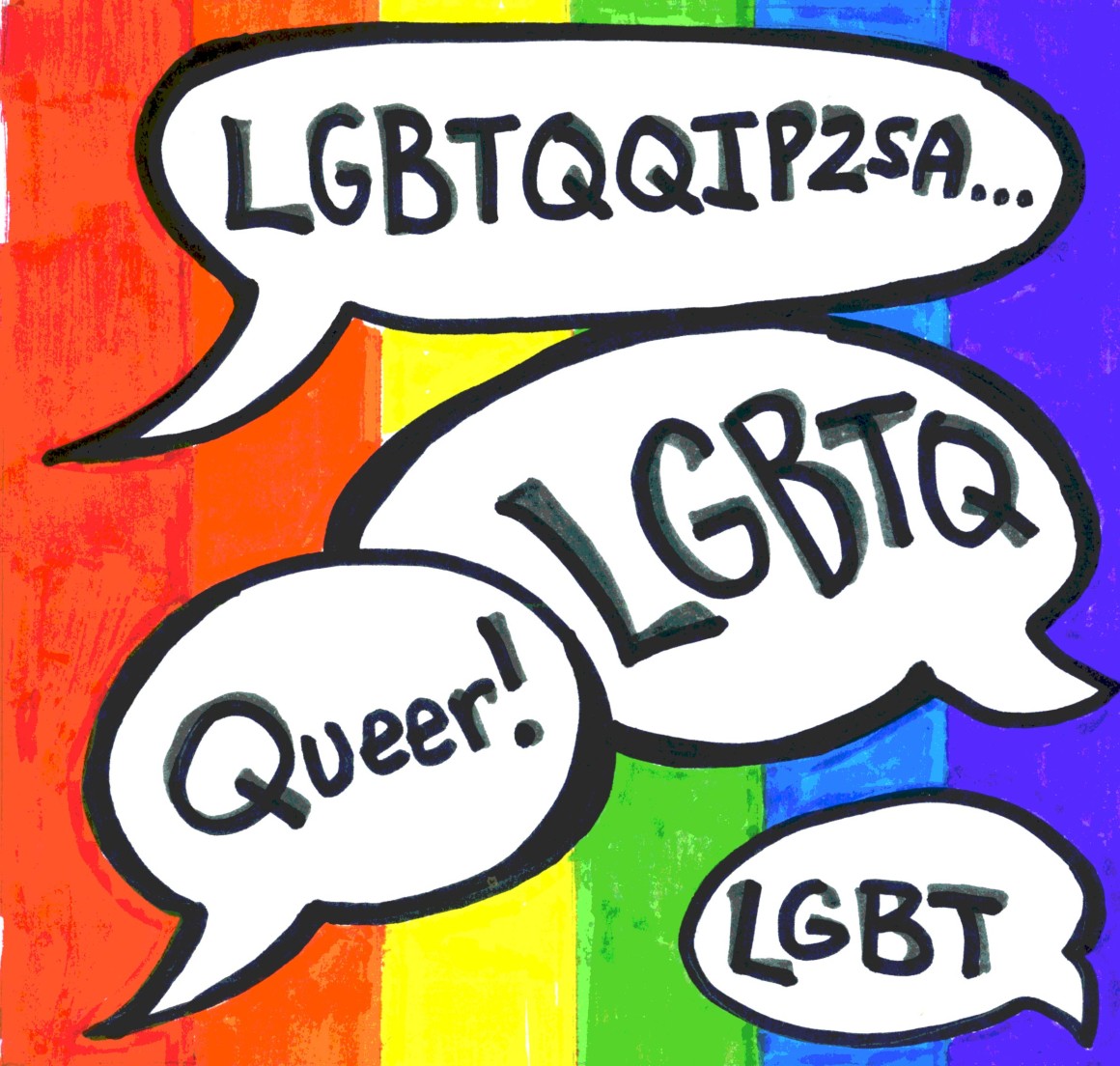
There will never be a letter for every identity
By Melanie Woods, October 6, 2015 —
When I first started seeing a woman, I told a friend while out to lunch at Denny’s on a Sunday afternoon.
“Do you identify as bi?” she asked. I shrugged.
“I guess that’s the label that fits best,” I said.
But there are a lot of labels out there. I could say I’m a demisexual biromantic cisgender woman. I could say I’m bisexual. I could also say that I’m queer. All of those terms apply to me, and it’s my right to identify as any of those terms.
Labels for different gender and sexual minorities are always changing. The University of Calgary Q Centre is billed as a “resource centre for the gay, lesbian, bisexual, transgender, queer and allied (LGBTQA) communities.” Calgary’s annual Take Back the Night march was advertised as being “LGBTQQIP2SA inclusive.” Spend enough time on the Internet and you’ll inevitably come across a heated argument in favour of one term or another, usually in the form of a 22-character long acronym with an assortment of letters, numbers and symbols tossed in.
These ever-growing acronyms are, in theory, as inclusive as possible. As we differentiate between a wide range of identities, new letters are added to try and recognize everyone. But while this expansion has good intentions, the result is often more exclusionary.
There’s a lot of pressure to use the ‘correct’ term. No matter how well-intentioned you are, say ‘LGBT’ and suddenly you invalidate asexual identity. Say “LGBTQA” and you’re unintentionally ostracizing intersex individuals.
We need to stop attacking well-intentioned people for forgetting a letter or two, and accept that we can’t conceive an acronym with a letter for every possible gender and sexual identity — identity is too broad of a concept.
There’s a reason that LGBTQ is so widely used. It’s simple and covers the bases.
The first part of the acronym, LGBT, is historically significant, refers to the most populous gender and sexual minority groups in lesbian, gay, bisexual and transgender people, and has been in use in some form or another since the 1980s.
The Q, an addition in recent decades, refers to queer and questioning. In her 1993 essay, “Critically Queer,” Judith Butler argues the term, previously a derogatory slur, needs to be reclaimed. Butler’s words prove true 20 years later — the U of C club for gender and sexual minorities is called Queers on Campus, I’m currently enrolled in a Queer Literature class and the word has gradually embedded itself in our lexicon as a value-neutral term for sexual and gender minorities.
That’s why I personally refer to it as the queer community. Bisexual, lesbian, gay, trans, asexual and more — we’re all queer here. But if you don’t feel comfortable reclaiming the term queer, it’s your right to identify however you want.
Just because there isn’t an acronym parsing out every aspect of your identity doesn’t mean those identities are invalid. And just because I can’t list off LGBTQQIP2SA from memory and instead use LGBTQ or queer doesn’t mean I don’t care about all genders and sexualities.
We should be able to choose the labels that we want to individually identify with, but we shouldn’t fault the community at large on the semantics of acronyms and chastise them if they get it ‘wrong.’
The LGBTQ community has it hard enough as is, and infighting about the letters in an acronym won’t get us anywhere.
Melanie Woods is a third-year English student. She writes a monthly column about modern social justice movements called Social Justice Cleric.
